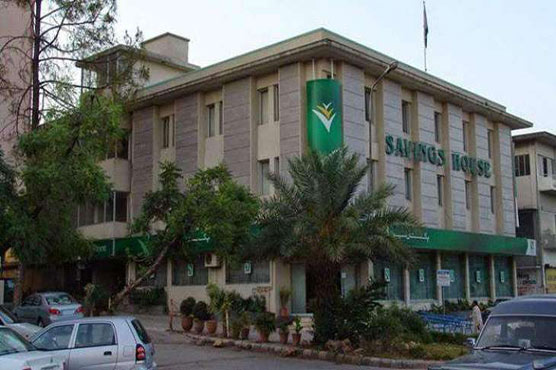CDNS to be safeguarded against ill-gotten money, terror financing

Currently, CDNS manages portfolio of Rs. 4,038 billion (Nov. 2019) of more than 7 million investors.
(APP) – The finance division through promulgation of the National Savings Schemes (AML-CFT) Rules, 2019, has decided to engage an AML-CFT compliant bank, through competitive bidding, to put in place the requirement as well as the necessary training of employees of Central Directorate of National Savings (CDNS).
Accordingly, Expression of Interest, in consultation with SBP, has been sought from the interested bank to conduct KYC (Know Your Customer) and other requirement of new as well as existing client of CDNS, said a press release issued by Ministry of Finance here on Saturday.
This will include the biometric verification and screening of potential clients in UN Proscribed Person List.
All these screenings are meant to stop any ill-gotten money to become part of financial system and to safeguard the valued investor from the menace of Money Laundering and Terrorist Financing.
Central Directorate of National Savings (CDNS) as it stands today is one of the longstanding institutions in the country with a legacy of more than 140 years.
The institution has always been a symbol of unshakable trust of the public. National Savings is playing its pivotal role to inculcate the Culture of Savings, facilitate Financial Inclusion and extending Social Security Net to the deserving sections of the society.
Around 33% of CDNS deposits are in Welfare Schemes which attribute around 2% incremental rate of profit over and above other regular savings schemes.
Currently, CDNS manages portfolio of Rs. 4,038 billion (Nov. 2019) of more than 7 million investors.
National Savings Schemes (“NSS”) provide risk free and competitive avenue to all segments of society specially the most vulnerable i.e. senior citizens, pensioners, widows, physically challenged persons and family members of Shuhada.
On the other hand, it provides a non-inflationary and cost effective borrowing to GoP to bridge the overall fiscal deficit which ultimately reduces dependency on external borrowing.
19% of domestic debt consists of NSS while these deposits are equal to 28% of total deposit of scheduled bank.
One of the main challenges to CDNS was its manual operations and lack IT, therefore, CDNS has started its journey of Automation in 2009 and successfully completed PSDP funded Automation Project Phase I & II in 2013 and 2017.
Through these project 223 National Savings Centre (“NSC”) i.e. (60% out of total 376) have been successfully automated. Automation of remaining 153 is in active process with support of Department for International Development (DFID), UK.
Meanwhile, CDNS has upgraded its core business solution from decentralized to centralized architecture.
144 branches have already been shifted to upgraded solution where customer transaction time has significantly reduced.
Also, the provision of Alternate Delivery Channels (ATM) is in final stages which will further improve the service delivery.
Introduction of technology has provided CDNS the opportunity to modernize its process which include swift data reporting, reconciliation with other departments, budgeting & forecasting, customer data base etc. Due to IT progress CDNS is now capable to implement number of initiatives which was not possible due to manual operation.
In this context, Asia Pacific Group in its recently published Mutual Evaluation Report (MER 2019), has pointed out number of deficiencies on the part of CDNS in terms of compliance to FATF recommendations, which has negatively affected the overall grading of different recommendations specially the recommendation 10, 11, 12 and 15.
In this context, CDNS is committed to mitigating the deficiency to improve customer service delivery and to comply the FATF recommendation to safeguard the interest of the investors. Banks under the supervision of SBP have already put in place all the required systems and KYC processes to comply the FATF recommendation.

